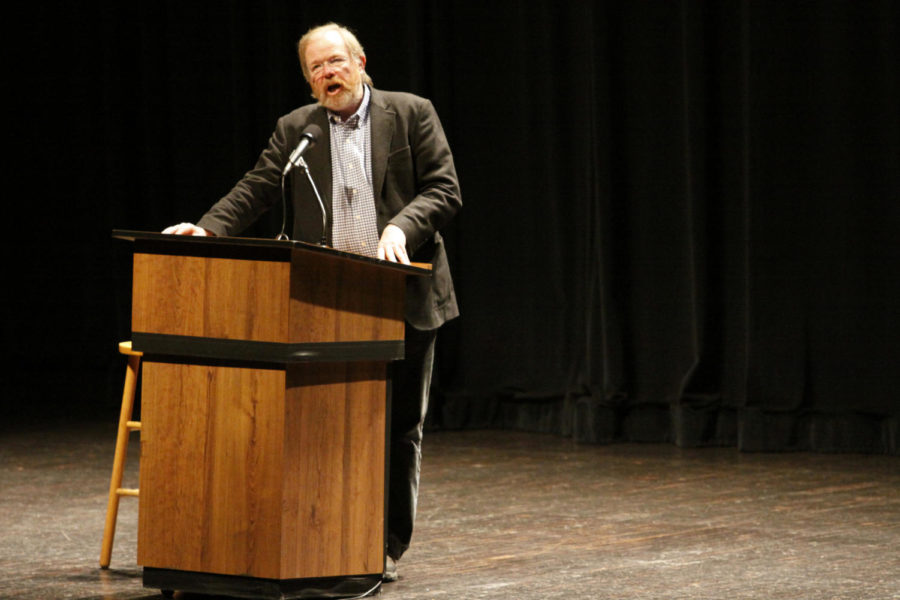An Iowan with an accent: Author Bill Bryson speaks at Iowa State
October 28, 2013
Readers have traveled many miles in Bill Bryson’s books, but ISU students only had to travel to Stephens Auditorium to hear the writer speak Monday.
Bryson, an award-winning writer, spoke to an audience that was composed of approximately 1,600 community members, students and faculty about who he is, what he does and the stories he has under his belt. Bryson has written several books, including “A Short History of Nearly Everything” and “The Lost Continent.”
The Iowa native’s work has focused on topics such as travel and history. He said he believes he has a higher profile in England than America, but someone he initially took to be a stranger recently recognized him on the street in Colorado — his son’s roommate that he had gone to dinner with two days earlier.
This was just one of the many stories Bryson told in his acquired English accent that caused the audience to chuckle.
“I hope that established that I am, without a doubt, an Iowan,” Bryson said, after reading off a list he had created that listed items Iowans could relate to.
Besides just telling anecdotes, Bryson read excerpts from his books, including “The Life and Times of the Thunderbolt Kid,” which tells the tale of his childhood in Des Moines.
The latest addition to Bryson’s books, “One Summer: America, 1927,” also came up.
“I think this is one of the books I’m most fond of,” Bryson said, adding he does not like to talk about his new books. “It feels slightly as if I’m giving away too much.”
Inspiration for the book came from Charles Lindbergh flying “The Spirit of St. Louis” across the Atlantic Ocean and Babe Ruth hitting his 60th home run in the same summer, Bryson said.
Bryson also provided insight into the way he writes his books.
“I write two kinds of books,” Bryson said. “Half of the books I write are slightly silly ones that are just meant to be entertaining. … but about half of the others are meant to be taken more seriously.“
The lecture was followed by a question and answers session as well as a book sale.
“It was really interesting to see him and how he related to Iowa still, especially after travelling around the world,” said Jason Messer, senior in anthropology. “He can still, you know, talk about The Des Moines Register, and you see the whole crowd erupt in talking like a town meeting or something.”
This was the last lecture that was part of the World Affairs series for the fall.







